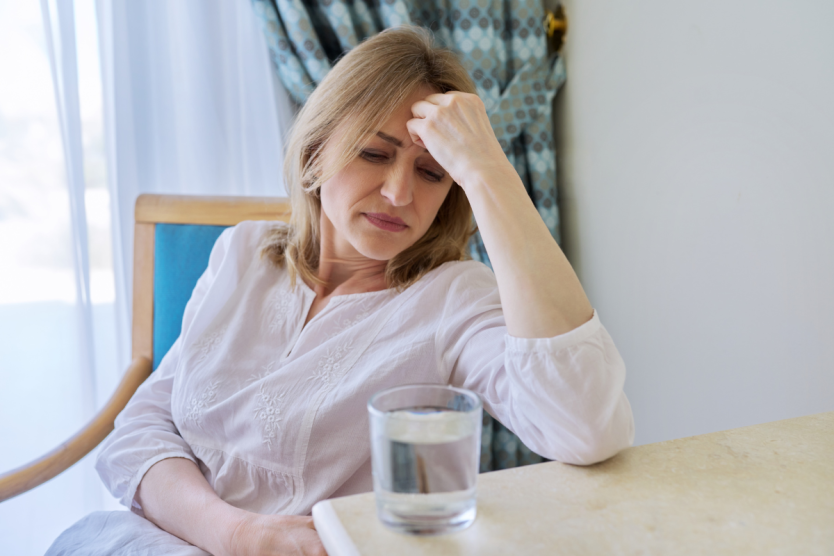Women in the midst of menopause are often anxious to see the end of this stage of life.
Suffering with symptoms that can be annoying—and those that can be health concerns, like heart palpitations—leads many of us to wonder: When will menopause end?
Here’s what signals the end of menopause.
The Stages of Menopause
The phase of a woman’s life known as menopause is when you have gone 12 months without a menstrual period. Most women move into menopause in their 40s or 50s.1
The physical and emotional symptoms of menopause can lead to disrupted sleep, lowered energy levels, and even depression, anxiety and other impacts on your emotional health.1
The length of time spent in menopause varies, and in fact there are three stages of menopause, so it may start to feel like it goes on forever! Rather than a distinct beginning and end to this phase, here are the transitions that occur:2
- Perimenopause: the time leading up to menopause, when your hormones start to decline and your menstrual cycles become erratic and irregular. You may start to experience symptoms of menopause.
- Menopause: is when you go for 12 months without having a period, because your body has stopped producing the hormones that cause them.
- Postmenopause: is the time after menopause—that time after you have gone without a period for 12 months.
The reality is, you are in postmenopause for the rest of your life. Your reproductive years are behind you and you’re no longer ovulating. The side effects of menopause may become milder or go away completely. But some women continue to experience menopausal symptoms for a decade or longer after menopause.2
What Signals The End Of Menopause
The fact that you remain in postmenopause means that you don’t actually “go through” menopause completely. In postmenopause, your ovaries are making very little estrogen and progesterone, and many women still experience side effects from low hormone levels.2
As well, there isn’t really an age that signals postmenopause: it’s simply when your period has been absent for more than one year.2
The signals of the end of menopause can feel a lot like lingering symptoms from menopause, although they may be less intense. For some women, the symptoms disappear.2
For other women, the signals of postmenopause are similar to that transition time of menopause: hot flashes; night sweats; vaginal dryness; depression; insomnia; urinary incontinence; and more.2
Postmenopause can also lead to an increased risk of some health conditions, such as cardiovascular disease, osteoporosis, and urinary tract infections (UTIs). It’s important to continue with a healthy diet and lifestyle, and to see your doctor for regular health screenings like breast exams and cervical cancer screenings.3
In particular, see your health care provider if you experience any vaginal bleeding after menopause. It could be caused by the dryness in your vagina, leading to spotting after sex, for instance. But it could be a signal of something more serious, like uterine fibroids, endometriosis, or even cancer.2
To determine whether you are in postmenopause, your doctor will ask you whether you are still having periods, and when was your last period. Other questions might center around any bothersome symptoms, and how uncomfortable those symptoms make you.4
A treatment plan may be devised using your own information on what improves your symptoms or makes them worse. Relaxation techniques, exercise, sleep and diet are possible treatments for all three stages of menopause,4 but there are medical treatments available too, such as hormone therapy.1
See a Doctor
If you are wondering whether you’re in menopause or you’ve moved into postmenopause, see a doctor to have your questions answered. Use our Physician Finder to find a doctor near you with expertise in women’s health, so you can learn more about the signs of the end of menopause, and carry on with the preventive health care tests that continue to be important as you age.1
















